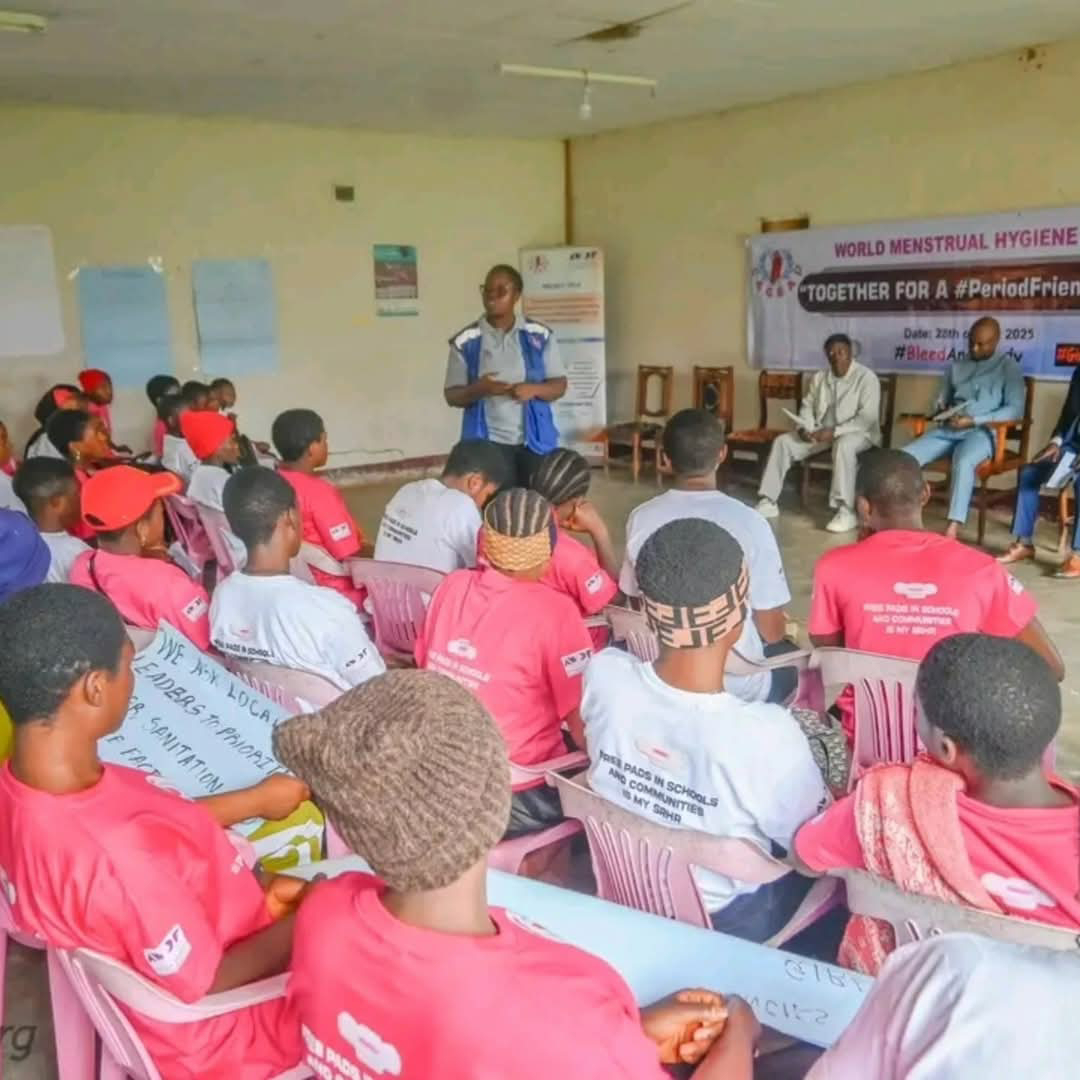In commemoration of Menstrual Hygiene Day 2025, the Centre for Advocacy in Gender Equality and Action for Development (CAGEAD) convened an advocacy event in Boyo Division that brought together 80 adolescent girls and young women (AGYW) from various schools and communities. The event provided a platform for these girls to present their challenges and proposed solutions regarding Menstrual Hygiene Management (MHM) directly to administrative, local, traditional, and school authorities.
With placards bearing the message, “We demand the removal of taxes on sanitary pads to make them affordable for all girls and women,” the young advocates called for urgent policy reforms to improve menstrual health outcomes and promote equity. They emphasised that sanitary pads are not luxury items but essential health products, and that taxing them places an undue burden on girls and women, especially in rural and low-income settings.
In Cameroon, particularly in more peaceful and accessible areas, a packet of sanitary pads sells for around 600 CFA francs enough for only three days of use during a normal menstrual period. For those experiencing irregularities or longer durations, the cost increases, as more than one packet may be required each month. The situation is even more challenging in remote communities especially now in conflict times with prices going up to 1000frs.
The participants presented their demands to a host of dignitaries, including the representatives of the Senior Divisional Officer (SDO) for Boyo, the Mayor of Fundong, the Director of the Regional Delegation of the Ministry of Women’s Empowerment and the Family (MINPROFF) in Fundong, school principals, and traditional leaders.
Beyond the removal of taxes on menstrual products, the girls also called for the construction of menstrual-friendly infrastructure in schools and communities, the inclusion of Menstrual Hygiene Management in the national school curriculum, the provision of free or subsidised sanitary products to schoolgirls and vulnerable women and Increase community sensitisation around menstruation to reduce stigma and misinformation.
These proposals align with successful policies adopted in other parts of the world. Kenya removed taxes on sanitary pads in 2004 and exempted raw materials used in their production from taxation in 2016.
Rwanda followed suit in 2019, scrapping an 18% value-added tax (VAT) on pads. South Africa and India have also eliminated tax on menstrual products, while the United Kingdom abolished its so-called “tampon tax” in 2021.
During the event, the representatives from CAGEAD highlighted that promoting menstrual dignity is essential in ensuring girls remain in school, participate fully in society, and enjoy their rights to health and education without discrimination.
More advocacy messages
The event in Fundong is part of CAGEAD’s wider campaign to mainstream menstrual hygiene management in Cameroon’s development agenda and empower young women to participate meaningfully in advocacy and governance.
By Bakah Derick with reports
Email: hilltopvoicesnewspaper@gmail.com
Tel: 6 94 71 85 77





